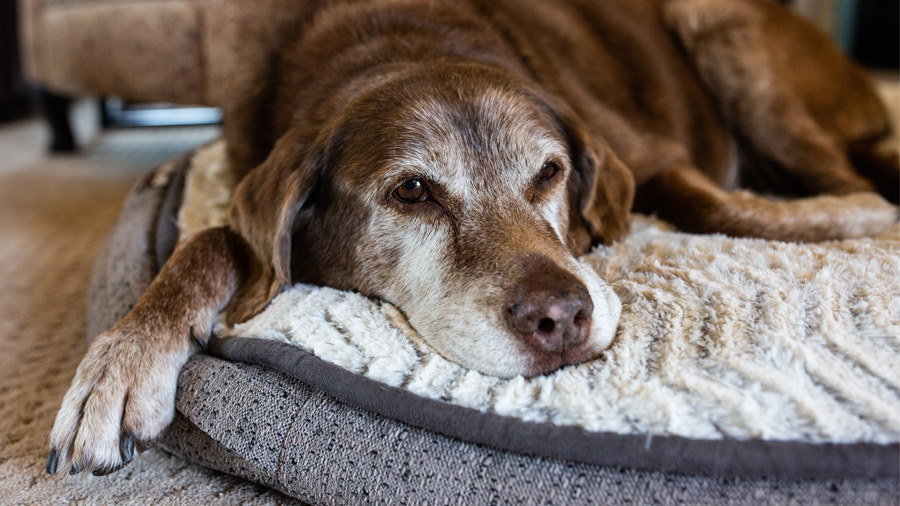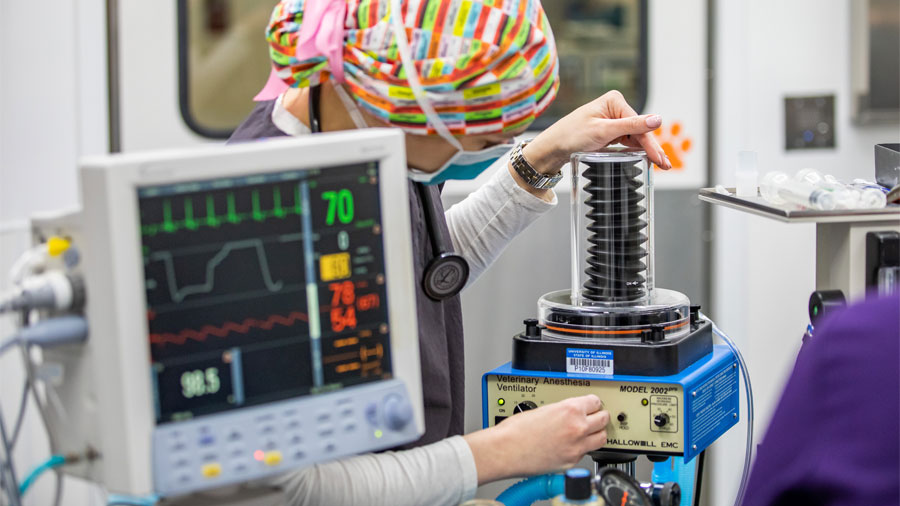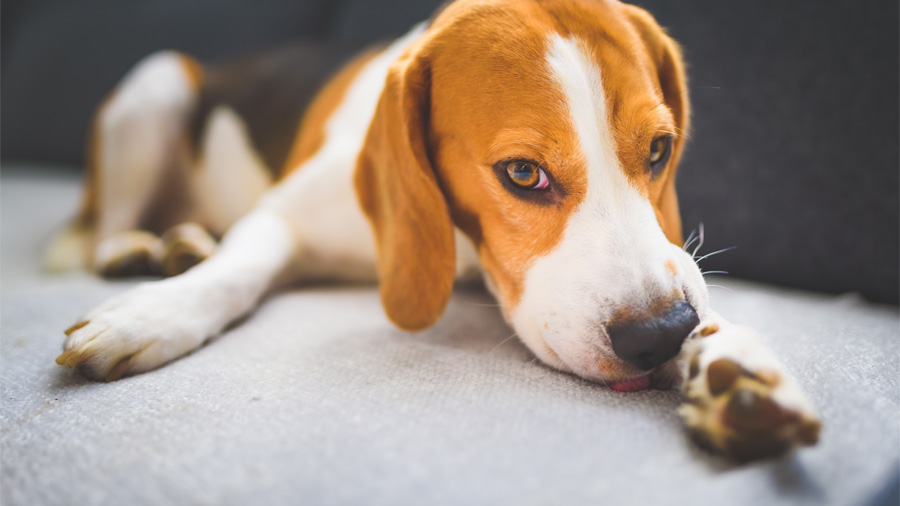Dangers Lurk in Lights, Plants, More
What you think of as holiday décor just might look like playthings to your pets.
“Animals will investigate anything new in their environment,” says Dr. Michael Biehl, a veterinary toxicologist at the University of Illinois College of Veterinary Medicine. “They explore things with their mouth, which can get them into trouble.”
Haul Out the Holly
Traditional decorative plants—mistletoe, holly, and Christmas cactus—are best kept out of reach of animals in the house. If your pet eats them, the result will likely be gastrointestinal upset, indicated by loose stool, abdominal pain, and vomiting.
“A common misconception is that poinsettias are lethal to animals,” Dr. Biehl says. This isn’t true. Actually, the poinsettia, like other seasonal plants, will only cause tummy upset. The sap of the poinsettia plant contains saponins that may also cause drooling and skin irritation. But not death.
The biggest worry related to plants would be if a pet eats such a large amount that a gastrointestinal blockage occurs, which could require surgery. But so long as the pet doesn’t eat a lot of the plant, their discomfort should be self-limiting. Dr. Biehl recommends giving the pet ice to help decrease the GI upset and temporarily taking away food and water.
Tinsel Time
“Cats are drawn to tinsel, which is shiny and resembles string, a cat favorite,” Dr. Biehl says. Unfortunately, tinsel can become trapped on the tiny barbs of the cat’s tongue, and the more the cat tries to remove the tinsel, the more tinsel is swallowed.
“A linear foreign body is a serious condition that arises when the intestines become bunched up around the string like object,” says Dr. Biehl. “Surgery is required to remove the item.”
String of Lights
Festive lightbulbs—especially if blinking—may entice animals to investigate with their mouth. When the bulb breaks, lacerations may occur in their mouth and, if the broken bits are swallowed, all the way down their throat. If a pet chews on the cord, electrical burns are a danger. These injuries merit a visit to the veterinarian right away.
Not-So-Great Watering Hole
“A lot of people don’t think about pets getting into the water in the tree stand,” Dr. Biehl says. The water for the Christmas tree may be refilled throughout the holiday season, but never truly emptied or cleaned out. This creates a perfect environment for bacteria and mold, which will sicken your pet. Make sure your pet is using her own water bowl.
So, are we telling pet owners to forgo the holiday decorations?
No, but you should know the risks and take steps to keep your pets safe. Dr. Biehl recommends preventing pets from going into decorated areas when they are home alone, or all the time, if they can’t be trusted. Childproofing gates are a handy way to do keep them in the safe zone.
Holiday Foods Off Limits to Pets
And also on Dr. Biehl’s holiday hazard list, though not related to decorations, are two potentially lethal food no-nos:
- Xylitol, an artificial sweetener that may lurk in sugar-free baked goods or candies, is toxic to dogs;
- Any high-fat foods, such as scraps of turkey or ham, can lead to acute pancreatitis in pets not accustomed to processing rich diet.
If you are concerned about anything your animal has gotten into this holiday, contact your local veterinarian, a veterinary ER, or the ASPCA Poison Control Center at 888-426-4435.
By Beth Mueller

![[dog in front of decorated tree]](https://vetmed.illinois.edu/wp-content/uploads/2021/04/pc-biehl-holiday.jpg)


